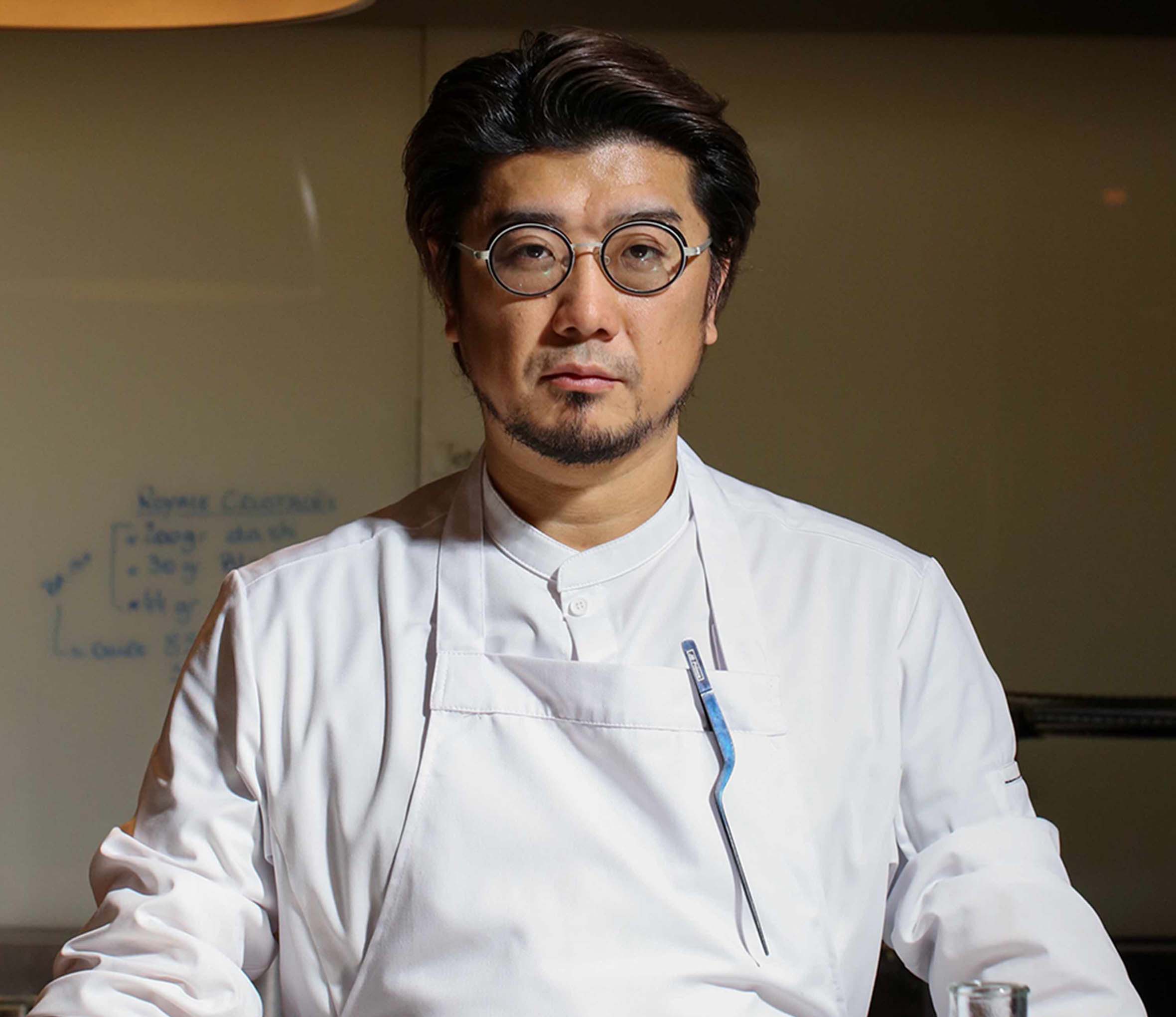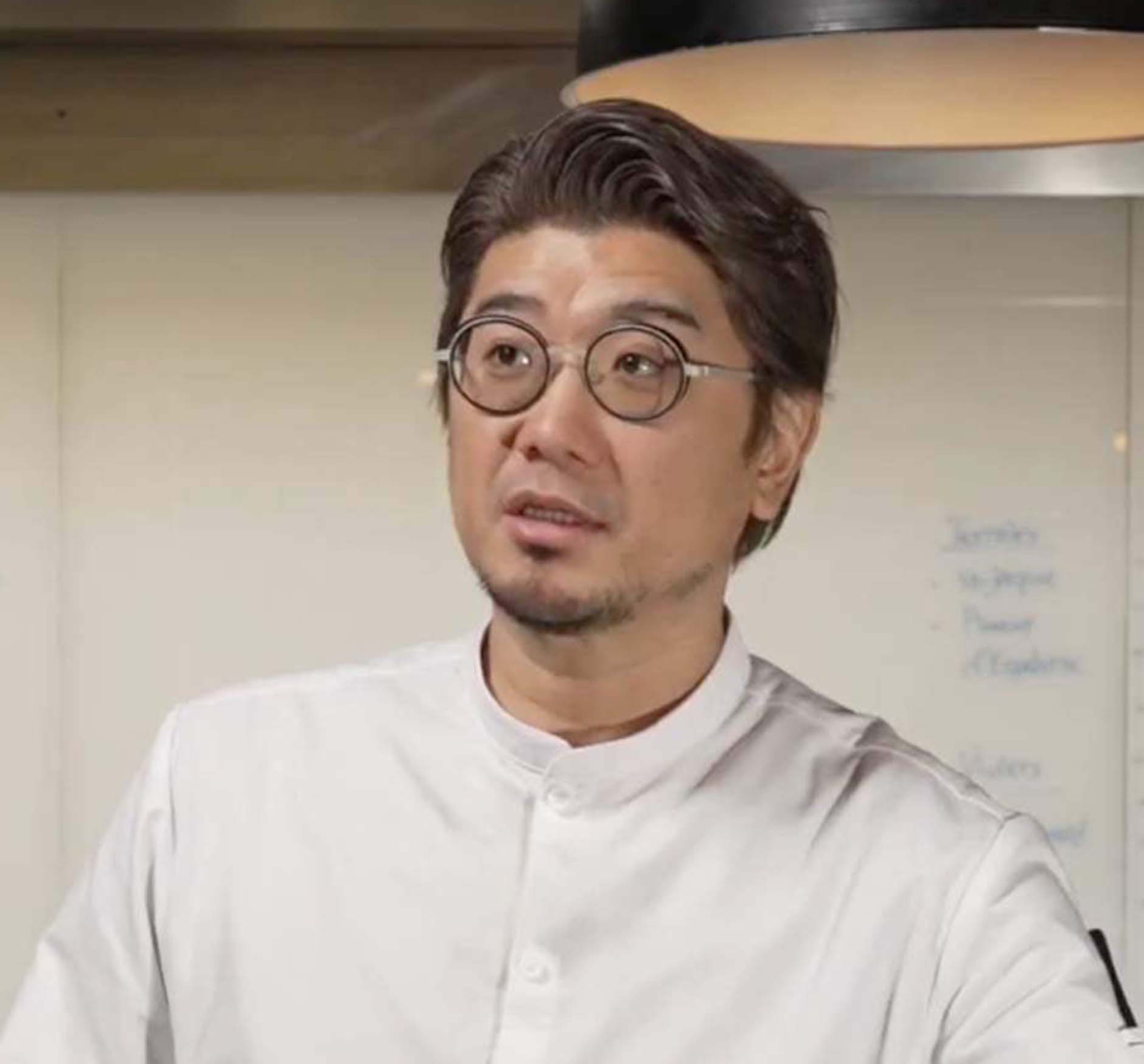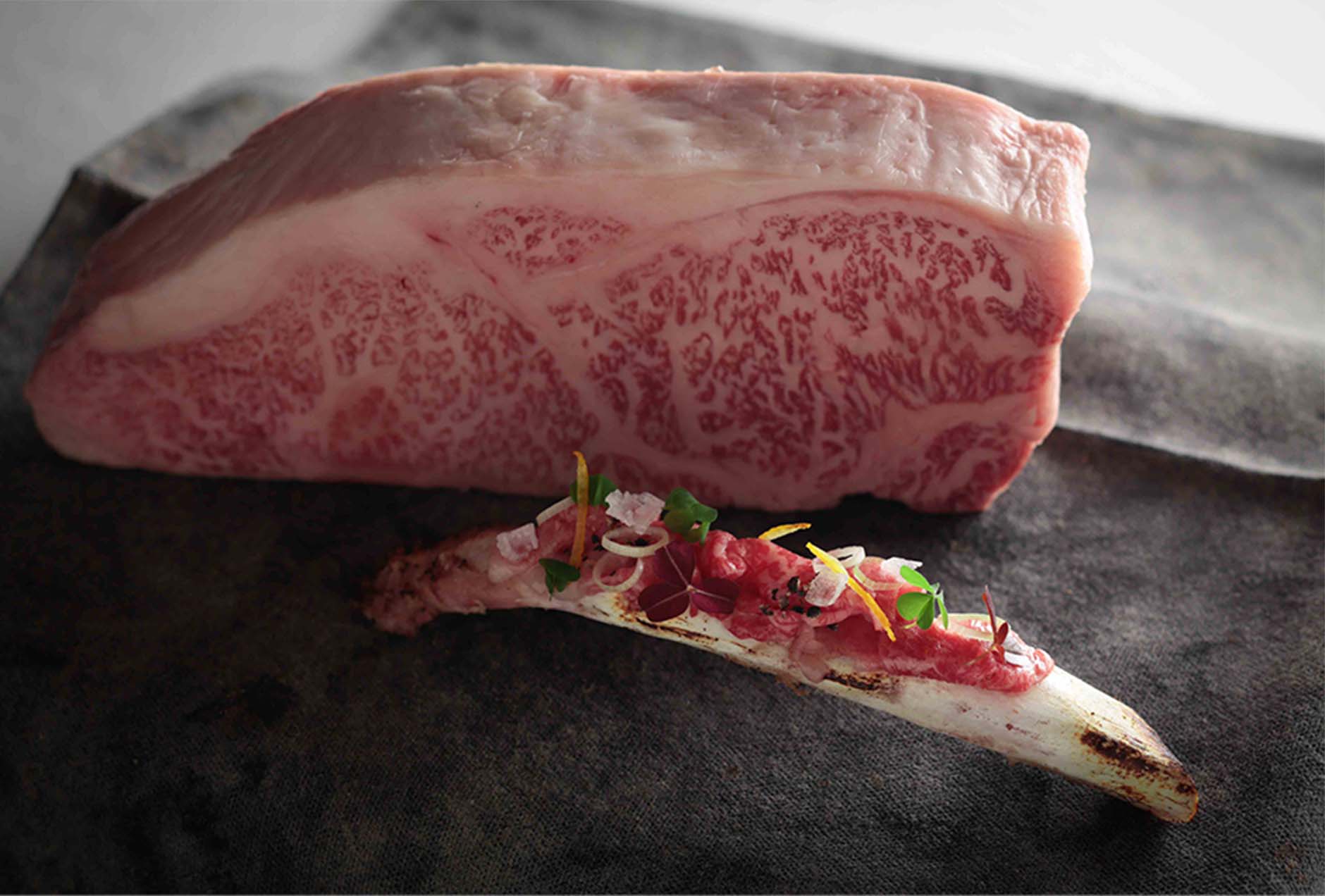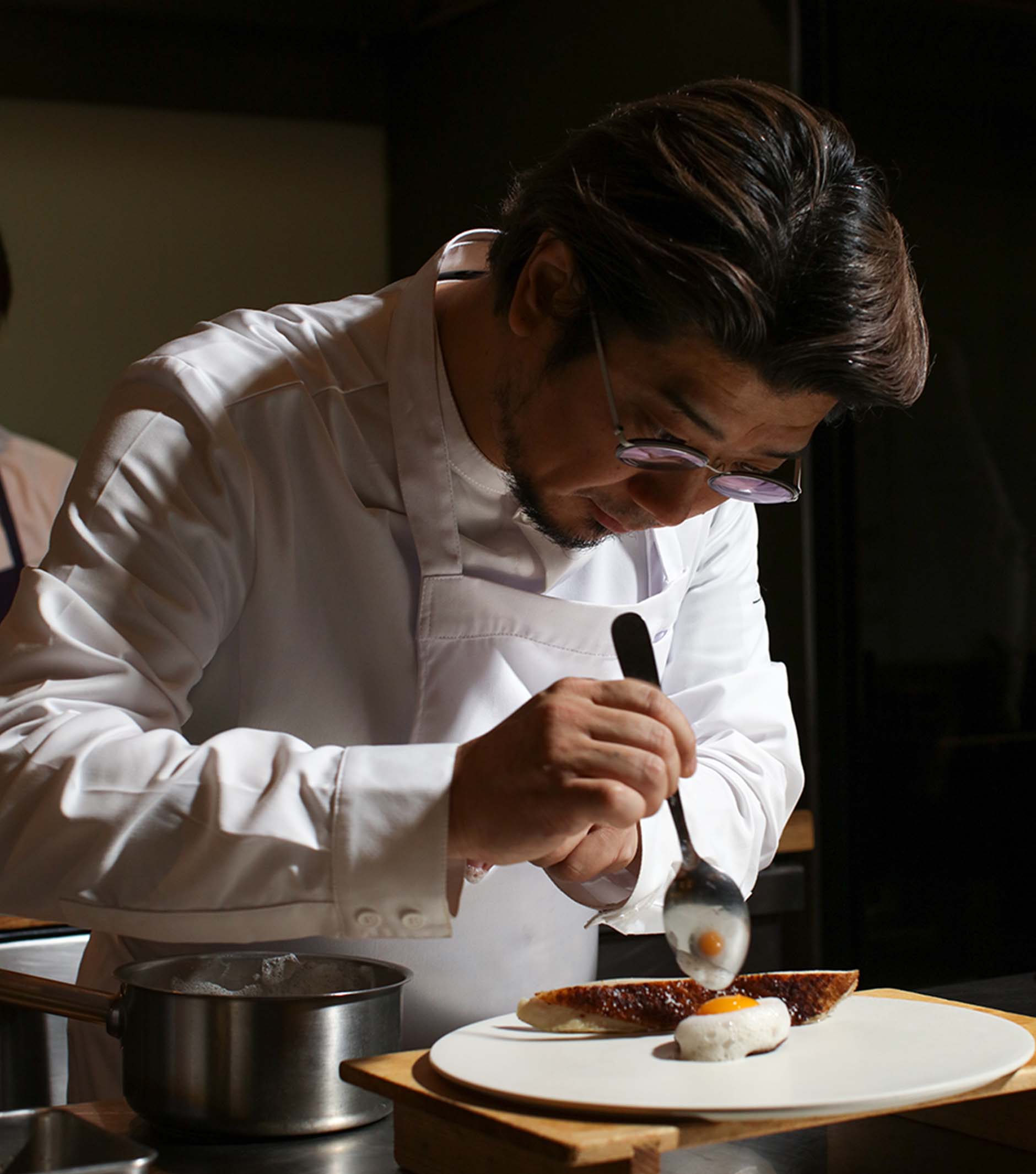
Japanese Wagyu beef as seen by a top chef
Many ways to enjoy a unique flavor
Restaurant Pages Owner chef
Ryuji Teshima
Born in Kumamoto Prefecture. Moved to France in 2002. After working at Michelin star restaurants such as Lucas Carton and Pomze, opened Pages in Paris' 16th arrondissement. The restaurant has held a Michelin star since 2016. His passion for meat led to a stint working at Hugo Desnoyer, one of the most famous butcher shops in France, for three years on weekends while working at a restaurant. Also participated in many Japanese Wagyu events not only in France but elsewhere in the EU. He is in contact with numerous Wagyu producers in Japan and actively participates in developing specially fattened cattle.
Various dishes with carefully prepared ingredients firmly entrenched in home cooking

I think washoku is the world's most delicious food. Of course, I'm Japanese, and it comes from my own culinary culture, but what's best about washoku is the attention to ingredients and their high quality. In Japan, I am able to find carefully selected, wonderful ingredients that are consistent in quality, from the farmers, fishermen, and fattening farms to shippers and wholesalers. I think another distinctive quality about washoku is the various foods made by highly experienced creators who have engaged in specialized study in certain areas like sushi, kaiseki, unagi, or soba. What Japanese and French cuisine have in common is they are familiar culinary cultures that are firmly entrenched in home cooking.

Japanese Wagyu, a unique ingredient

Among Japan's culinary culture and foods, I think Japanese Wagyu is the best beef in the world. Unlike other beef, it has of course the beautiful marbling, and the umami of its fat. Also, it is a delicacy on par with truffles, caviar, and foie gras, which can satisfy you with only a small amount. If we liken foie gras to Japanese Wagyu, just as the French don't think of foie gras as duck liver, we do not equate Japanese Wagyu to beef. Japanese Wagyu is a unique food.

The special delights of Japanese Wagyu

Japanese Wagyu, which evolved in Japan's culinary culture, is prepared specifically for dining with chopsticks. We use sliced meat for sukiyaki and shabu-shabu, and bite-size cuts for yakiniku. There are various Japanese Wagyu dishes, so European chefs can adapt their approach and make the food pleasing. When you taste it, you experience the mellow aroma, the fatty meat's lingering flavor, umami and sweet flavors, plus the way it delightfully melts in your mouth. These are among the traits that I want people to enjoy with Japanese Wagyu, because you can't find them with any other beef.

